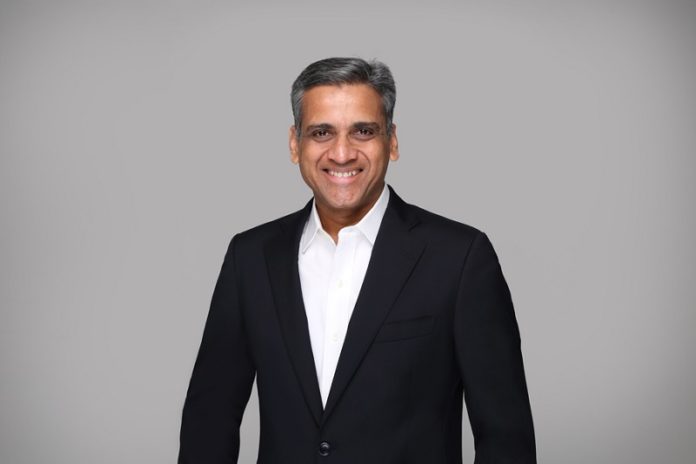In the unveiling of its 2021 Budget, the Government of Singapore acknowledged that technology is central to the economic health of the country. The focus on digital transformation and innovation is not only world-leading but critical as we look to climb from recession.
It is difficult to overstate how much the success of this transformation, and our ability to tap into new opportunities, rests on the strength of our cyber defence. The Singaporean Government’s appetite for investing in next-generation defensive technologies is admirable and the key to staying one step ahead of attackers’ businesses are now up against. What we must see in particular, is an investment in autonomous defences powered by artificial intelligence.
Cyber-attacks have surged against the backdrop of the global pandemic and redoubled in sophistication – but the SolarWinds Orion attack was the last canary in the coal mine – with victims including Asian organisations alongside the heavyweight US Fortune 500 companies and government departments. While we’ve seen ongoing cyber compromises and data breaches over the past decade, this most recent attack exposes the increasing use of cyber-attacks in geopolitical conflict and, crucially, the vulnerability of even the most equipped national superpowers in the face of well-resourced and creative cyber adversaries.
This attack represents the new era of cyber-threats that we now find ourselves living in – one in which thousands of businesses are finding themselves caught in the crosshairs of dangerous state campaigns. In the wake of this attack, nations must completely re-evaluate their approach to detecting and defending against increasingly novel campaigns masterminded by nation-states and cyber-criminals.
The Government of Singapore’s commitment to fostering a ‘strong spirit of innovation’, fuelled by the technological advances and a reconfiguration of global supply chains, necessarily hinges upon its ability to heed the lessons learned from these silent but deadly campaigns which businesses in this country are not immune to.
Combatting the next generation of cyber-threats is not about building walls around our businesses and critical organisations. Nor is this possible – we cannot build walls around what are now the most dynamic and sprawling digital environments we have ever seen, and complex, global supply chains now offer many more points of vulnerability that may be tested in the pursuit of compromising systems. These supply chains, as Minister Heng Swee Keat has acknowledged, are set to only increase in complexity – and a technologically advanced world is a hacker’s playground.
The Government of Singapore is showing promising signs of recognising the old ways of doing security are not enough. In October 2020, the 2020 Cybersafe Masterplan positioned AI as preeminent in detecting security threats, critically those targeting key infrastructure and 5G broadband networks.
This is a crucial first step in acknowledging that AI is critical in enabling a digital future for Singapore, but it’s got to go further. Not all AI is equal and many AI-powered security solutions are merely analytical tools that create reports after an event has occurred.
The most powerful contribution that AI has made to cybersecurity is that of fully autonomous, intelligent defence systems. This is the next-generation technology that sits in the heart of an organisation and is entirely self-learning, understanding the unique pattern of life for each organisation and taking autonomous and strategic actions to stop anomalous behaviours in its tracks. This is the future of cybersecurity – a self-defending and self-healing cyber ecosystem. Cybersecurity today is no longer a human-scalable problem – we already face major global shortages in cyber skills and even if we trained up millions of people, they would not be able to spot or respond to the silent, deadly and computer speed attacks we are now witnessing en masse.
Singaporean businesses are preeminent in coming to terms with this reality and many blue-chip organisations such as M1 Limited, Shook Lin & Bok LLP, International Baccalaureate, AWWA, and several across the healthcare and pharmaceutical space including Santen Pharmaceutical are leading the charge, embracing Autonomous Cyber AI to fight threats on their behalf at computer speed.
Indeed, Global Travel, Singapore’s leading travel management solutions company trusts AI to work 24/7 and autonomously fight back on its behalf. ‘AI-powered cyber defence is the only technology adept at dealing with this new era of attacks which are increasingly more silent, stealthy, and dangerous,’ said James Chua, Global Travel’s General Manager. ‘For us, it’s mission-critical to deploy technology that shuts down threats within seconds of them emerging.
For thousands of organisations around the world, this technology has been crucial for keeping the lights on during the pandemic, during which staffing shortages and an onslaught of attacks rendered several organisations inoperable. Today, across the Asia-Pacific region, AI autonomously responds to an emerging threat every six seconds and performs over 150,000 investigations per week.
We can be in no doubt that the full damage of SolarWinds is yet unknown, and the same access will lay the groundwork for masterminded disruption and sabotage operations that bleed from the public to private sectors – this is an inevitability.
Singapore is leading the defensive arms race, with many organisations already entrusting Autonomous Cyber AI to defend their digital enterprises from threats far beyond the capabilities of human security teams. In the face of the increasing threat from advanced nation-state actors, and a new reality of cyber warfare, Singapore is ready to further realise the potential of not just ‘AI’ but the meaningful, intelligent application of AI that fights on humans behalf – the mutually dependent partnership of human and AI which is now the bedrock of cybersecurity. The success of Singapore as a Smart Nation and the realisation of digital transformation rests on this.
















